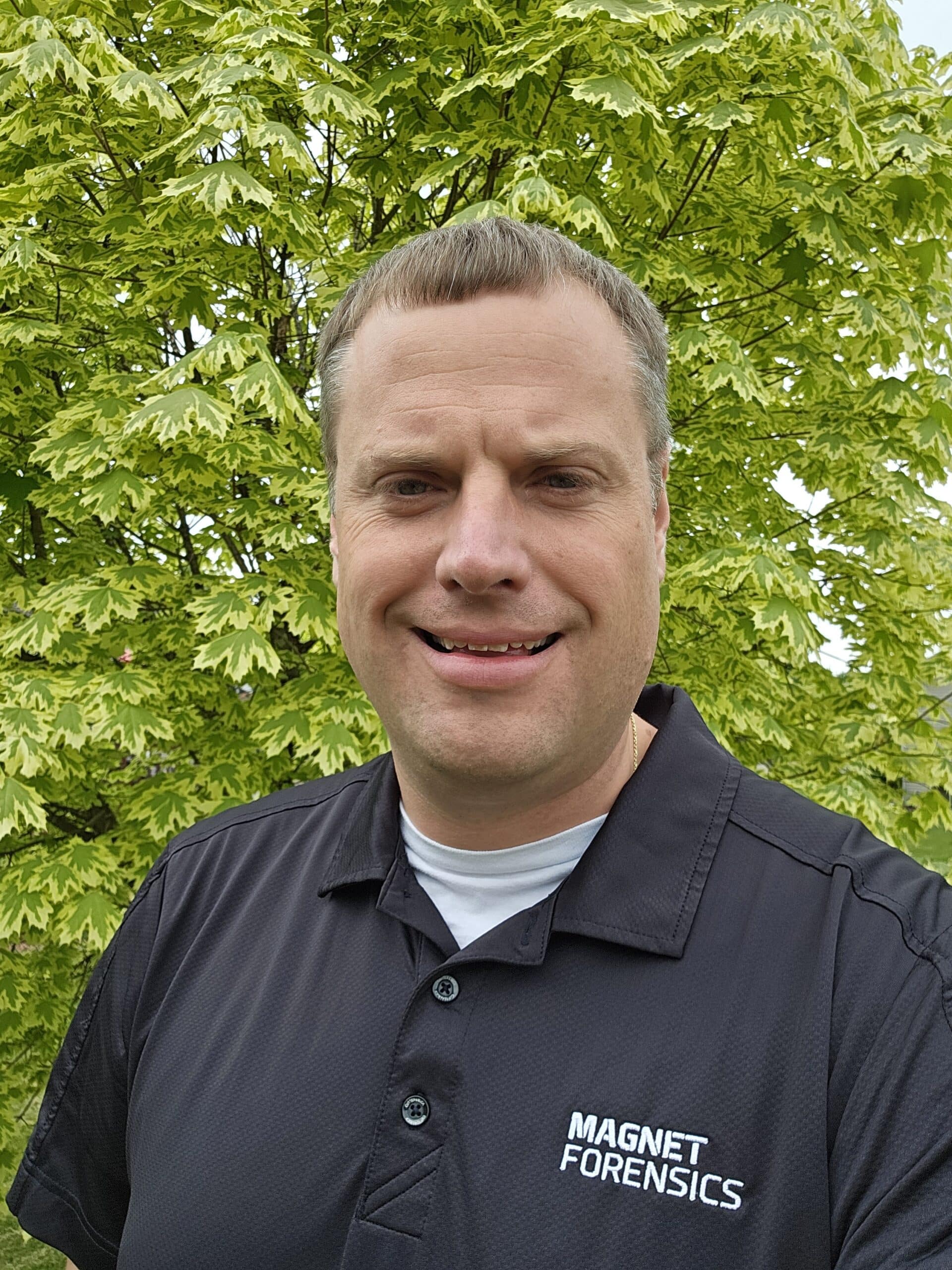
Meet the Magnet Forensics Training Team: Anthony Reince
Our Training team continues to grow. In our latest “Meet the Forensic Trainer” blog, meet Wisconsin, USA-based Anthony Reince!
Want a chance to learn from Anthony in the classroom? Learn more about what courses are offered through our Training & Certification portal.
MF: Tell us about your life before becoming a Trainer.
AR: Prior to joining the Magnet Forensics Training Team, I completed over 20 years as a law enforcement officer with the Wausau Police Department in Wisconsin. During my time at the Wausau Police Department, I had many additional roles including being a Field Training Officer, First Aid and CPR Instructor, School Resource Officer, and most recently a Detective assigned to a regional digital forensics lab. My caseload as a Detective was providing digital forensic services and Internet Crimes Against Children (ICAC) investigations. My position also required on-call rotation, so I responded as the initial Detective for major investigations outside normal business hours.
MF: What made you want to be a Trainer?
AR: I am a firm believer in sharing knowledge and making boring things fun. I started teaching law enforcement and emergency medical services classes in 2005 through a local technical college. Since then, I have never stopped teaching. I have taught Magnet Griffeye classes (as a contract instructor), local prosecutors, my peers at the police department, and blocks of the Basic Computer Forensics Examiner Course (BCFE) through the International Association of Computer Investigative Specialists (IACIS). All of these experiences have solidified my goal to become a full-time trainer. .
MF: What type of training have you taken part in personally? What is your favorite part of the role?
AR: I have taken courses through Magnet, NWC3, IACIS, the Law Enforcement and Emergency Services Video Association Inc (LEVA), ICAC, and the National Computer Forensic Institute (NCFI). The part I love best about attending digital forensics training is that it never remains the same. Digital forensics never stops changing, and no one can know it all. This makes constant learning, whether it be during a class or on your own, a must.
MF: What excites you the most about a new class?
AR: People make the class. A new class means I get to meet and interact with new people. I love to learn from others but also love to share my experiences, including mistakes I have made, to help them become successful.
MF: Do you ever learn anything from the students?
AR: All the time! If you think you know everything about digital forensics, you are wrong. I have found everyone either has a niche within the digital forensics umbrella, or they have general knowledge about a lot of things. I love to surround myself with people who are smarter than I am. I make that comment a lot and it applies to everyone in the class. Everyone has different experiences and knowledge base, whether it be a trick with a tool or a really cool artifact they discovered during an investigation.
MF: Is there a particular moment that stands out the most to you in your career in the classroom?
AR: I love the time a student either understands a difficult concept or learns something they can apply to a current investigation. I have many memories of when people were so excited, I thought they were going to jump out of their chairs as if they won a prize in a game show.
MF: What do students get out of training in person that they can’t get on their own?
AR: In-person training offers numerous advantages over self-learning or virtual learning. These include greater opportunities for interaction, fewer distractions, a more conducive environment for group learning, and the ability for instructors to assess understanding through nonverbal cues.
MF: How prepared do you feel students are to use Magnet Forensics products after taking the training course?
AR: Magnet Forensics training courses are very effective at teaching people how to use their products. The courses also go further into showing students how to verify the information being displayed, concepts on how to dig deeper, and why or why not a specific artifact is present.
MF: What is most unique about Magnet Forensics’ approach to training?
AR: We have all attended training where it was death by PowerPoint. Magnet Forensics training is developed and presented to be hands-on. This hands-on approach allows students to interact with data and programs to help facilitate the learning process.
MF: Why do you think certification is important to examiners?
AR: Anyone can sit through a class, but it doesn’t mean you understood the concepts or can effectively use the tool. Certification allows you to prove you not only took the course but also learned the concepts taught during the course. This is very important when you are testifying in a legal setting or presenting your findings to a customer.
MF: How do you manage to keep up on the latest trends in digital forensics?
AR: I have an unquenchable thirst for knowledge, specifically with digital forensics. I love to network to learn what others are facing and their solutions, read blog posts, list serv posts, dig through data sets to answer questions about why or how something got there or why it isn’t there when it should be.
MF: What trends do you see coming down the pipeline in digital forensics?
AR: Cloud storage, encryption, and AI. Everyone stores data in the cloud which is prone to data breaches but also presents a big issue for legal authority in collecting the data. Add to the complexity of cloud storage that the data stored is encrypted and keys on a device may be needed to decrypt the data. Encryption goes far beyond cloud storage as vendors are adding encryption features which also inhibit investigators to access the data, even with legal authority. AI is both helpful and scary. AI makes it very essential for investigators to validate the authenticity of the data they are being presented with, prior to taking any legal action.